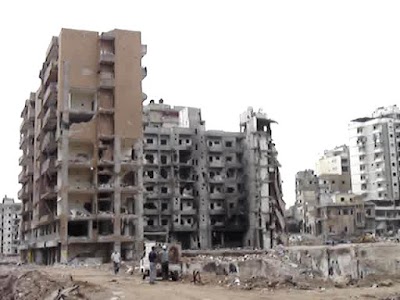Bint Jbeil (بنت جبيل)
Overview
Welcome to Bint Jbeil, a historic gem nestled in the Nabatieh Governorate of southern Lebanon. This enchanting town is celebrated for its breathtaking landscapes and a rich tapestry of history that stretches back thousands of years. Bint Jbeil has been shaped by various civilizations, including the Phoenicians, Romans, Byzantines, and Ottomans, each leaving a unique imprint on the town's vibrant heritage.
The name Bint Jbeil translates to "daughter of the mountains," a fitting description given its stunning mountainous backdrop. Its elevated position has historically provided natural defenses, making the town a strategically significant site throughout the ages. Over the centuries, Bint Jbeil has transformed from a quaint ancient village into a vital cultural and economic hub in the region.
Roman Heritage plays a pivotal role in Bint Jbeil's history. As an important center during the Roman era, the town's proximity to major trade routes led to the construction of essential infrastructure, including roads and buildings, some of which still stand today. Archaeological discoveries reveal remnants of bread ovens, storage rooms, and olive presses from the Roman period, highlighting daily life in ancient Bint Jbeil.
During the medieval period, Bint Jbeil thrived under the rule of various empires. The Crusaders recognized its strategic significance in the 12th century, erecting fortifications to protect their territories. Later, during the Ottoman era, the town emerged as a key administrative and trade center in southern Lebanon, further enriching its historical narrative.
Bint Jbeil is also a tapestry of cultural and religious diversity. Over the years, numerous mosques and churches have been constructed, reflecting the spiritual life of its residents. One standout structure is the Great Mosque of Bint Jbeil, a central place of worship and community gathering. Its architecture showcases Islamic design, featuring elegant arches and intricate mosaics, a testament to the town's historical richness.
The local economy has traditionally focused on agriculture and trade. The fertile lands surrounding Bint Jbeil are perfect for cultivating olives, figs, and other fruits. The town is particularly renowned for its high-quality olive oil, a staple of the local economy for generations. Additionally, local crafts such as weaving and pottery play a significant role in the town's economic landscape.
Unfortunately, Bint Jbeil has also faced its share of conflict and adversity. The town played a crucial role in recent Lebanese history, especially during the conflicts of the late 20th and early 21st centuries. Yet, the resilience and determination of Bint Jbeil's residents shine through as they work tirelessly to rebuild and preserve their cultural heritage. The community's spirit is one of strength and solidarity, steadfast even in the face of challenges.
Today, Bint Jbeil is a bustling town on the rise, boasting modern educational institutions, healthcare facilities, and improved infrastructure. These advancements contribute to the ongoing development of the town, which stands as a symbol of Lebanon's rich historical tapestry. The people of Bint Jbeil proudly uphold their traditions while embracing the opportunities of modernity.
In summary, Bint Jbeil's narrative is one of endurance and adaptation. From its ancient beginnings to its contemporary resilience, the town serves as a living testament to the diverse cultural and historical influences that have shaped it over the millennia. Whether you explore ancient ruins or vibrant markets, Bint Jbeil continues to embody the spirit of Lebanon’s proud heritage.








